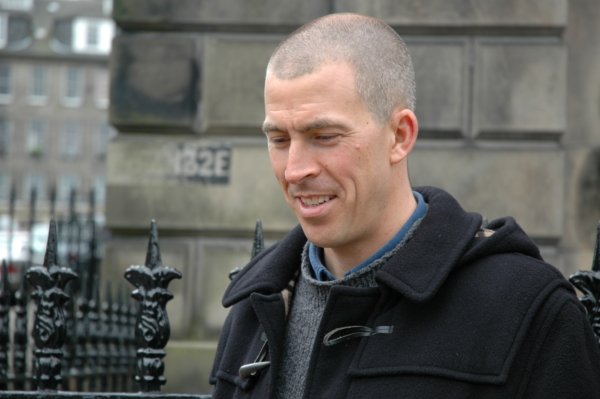
Nicola Mason: In Keeping Time, Aaron is an archaeologist—and American expat in Scotland—and his knowledge of Neolithic sites and rituals derives in large part from your script-writing research for Half Life, an environmental art event (taking place across a hundred square miles) for the National Theatre of Scotland. Violet’s keen grasp of Bach’s life and oeuvre, especially The Well-Tempered Clavier with its radical notions of tuning, are equally impressive—and yet you’re not a musician. Where did you come by your understanding of the musical mysteries that drive Violet as a character?
Thomas Legendre: Years ago I happened to hear a composer on the radio talking about Bach’s Passacaglia in C Minor, and I became fascinated, borderline obsessed with it. I can be really geeky sometimes. I wanted to learn about music not only as a listener but also as a practitioner, so I took piano lessons from a teacher with bottomless patience and spent a lot of time at the keyboard before letting it drop due to an overpacked schedule and a jaw-dropping lack of talent. In fact, Violet’s lessons with her young clumsy student are largely modeled on some of my sessions. I’m not a musician, but I struggled with enough music to feel like one for a while. This wasn’t too different from participating in an archaeological dig and crawling through chambered cairns, which I also did. More to the point, though, while all this was happening I began to understand that the novel’s female protagonist was a classical musician and I was actually discovering her by learning about music. Then I encountered the Circle of Fifths, which floored me not only in and of itself but also for how it corresponded with rock carvings and other elements of archaeology, among all kinds of other issues such as temperament, identity, enharmonics, the difference between a circle and a spiral determined by the Pythagorean comma (feel free to Google) . . . on and on. The more I learned about Bach and his music, the more it seemed like a Rosetta Stone, or a strangely natural way of understanding prehistoric ritual practices. I suppose this is how Violet’s music and Aaron’s archaeology became not only the DNA of their individual characters but also the double helix of the novel itself with its twin narratives. Although they can be distinguished from each other, ultimately they only make sense together.

